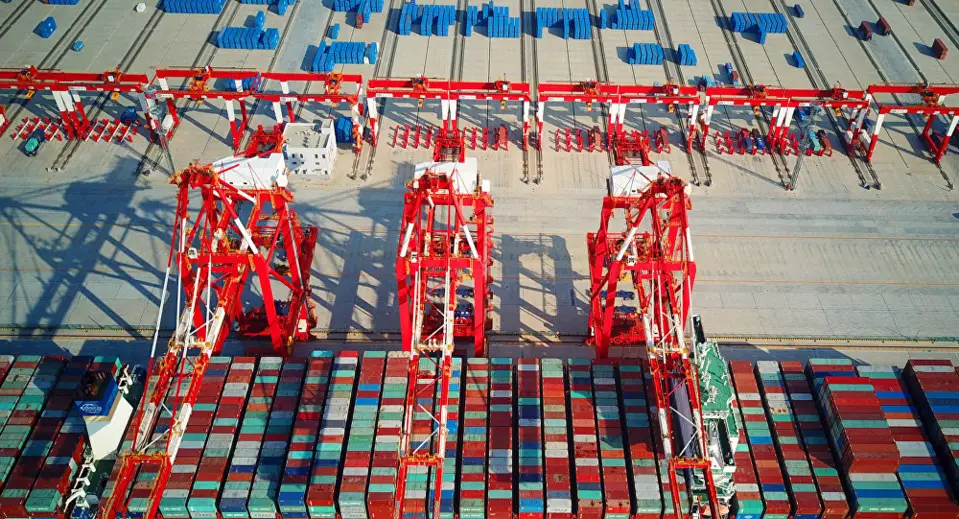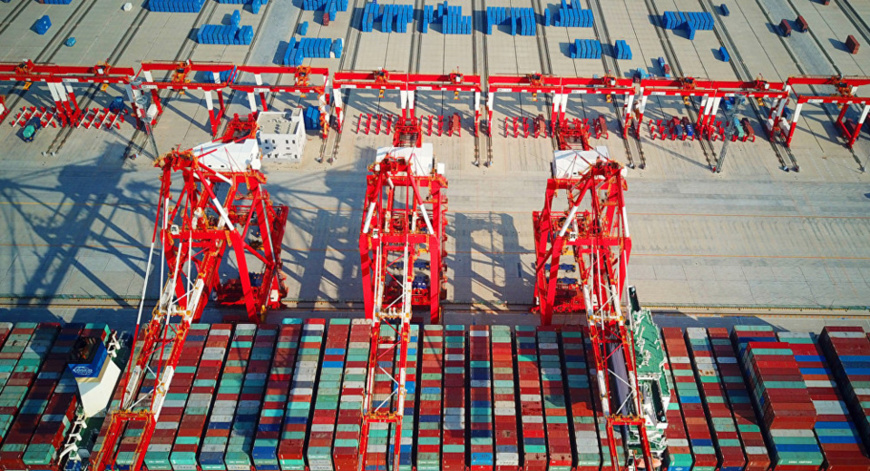By Li Yichu
The arrogant US seems to fear nothing in the trade war it unilaterally ignited against China, but it is unaware that there would be no winner in a trade fight.
The White House fired the first shot of the largest trade war the world has ever seen by levying 25 percent tariffs on $34 billion of Chinese products starting from July 6. Five days later, Washington worsened the tensions by threatening to slap an additional 10-percent tariff on $200 billion worth of Chinese goods.
The US, as the instigator of a trade fight between the largest two economies of the world, is doomed to swallow the bitter fruits at last.
The trade war is unquestionably a damage to the reputation of the US. China and the US had reached consensus on not starting a trade war after four rounds of tough negotiation. But the US soon ate its words and turned hostile.
There’s an old Chinese saying that a person without credibility would fall, a nation without credibility would collapse. Being a major country that throws credibility away, the US has disheartened other countries when making a contact.
In addition, the trade war hurts the US economy. The US consumers would finally pay for the trade war because those added tariffs on Chinese products will be finally transferred to them as a result of the high economic integration between the two countries.
Statistics indicated that the consumer price index of the US would be 1 percentage points higher if the White House keeps amplifying the tariffs.
The US enterprises operating in China would face severe challenges as well. Over $20 billion of the products on the $34 billion tariff list are produced by overseas companies in China, of which the US ones take a considerable ratio. In this sense, the trade war is nothing but a slap on the face of these US companies.
Moreover, many of the US citizens would suffer from unemployment due to the trade war. Mark Zandi, chief economist of Moody's Analytics, warned that the tariff policies released so far are expected to cost the US 145,000 jobs by the end of 2019, and this figure would further expand to 500,000 if the US administration increases tariffs on an extra $100 billion of Chinese products.
What’s worse, the US would miss chance in the broad Chinese market. With the world’s largest middle-income population, China remains the largest auto market, outbound tourists resource, and the second largest medical, drug and box office markets. The trade war initiated by the US against China is shutting down the door to the Chinese market for many American products.
Besides, the trade war leads to a tarnished international image of the US. Claiming the world is taking advantages of the US, the White House is turning the “America first” to “America only”. It might help the country gain short-term profits, but such practice also exposes the country’s selfishness.
The US not only points a gun at China, but also other countries and regions including the European Union, Canada, Mexico, India and Russia. Such typical unilateralism and trade protectionism undermine global supply chain, damage the multilateral trading system, and diminish the soft power of the US.
Bob Corker, chairman of the Senate's Committee on Foreign Relations, cautioned that the US tariff policies would lead to worldwide confrontation against the US.
Many analysts believe that the US administration is to a great extent canvassing for the mid-term election to be held in November. The spokesperson of China’s Ministry of Commerce once said that the US is firing shots to the world, including to itself.
The trade war would inevitably harm the interests of US farmers, businesses and consumers, thus putting negative impacts on the Republicans’ polls.
It is reported that the US Chamber of Commerce has launched a campaign against the US tariff policy and will raise millions of US dollars to back candidates who support free trade in the mid-term election.
Of course, China would also suffer from losses in this trade war, but it has no choices but to hit back. China needs to teach the US a lesson out the necessities to safeguard its own interests, protect the multilateral trading system, refute the slanders put upon by the US, and better introduce China to each sector of the American society.
China has to fight back out of the consideration to insist on equal relations among countries and defend the principle of credibility.
China must make the US learn from its mistakes and realize that the trade war is a disaster to itself, the other countries, as well as the whole world at large. China hopes that the US could step back from the brink and find a way back to correct track.
It is believed that more and more countries will join China during this battle against the US unilateralism and trade protectionism.
The White House fired the first shot of the largest trade war the world has ever seen by levying 25 percent tariffs on $34 billion of Chinese products starting from July 6. Five days later, Washington worsened the tensions by threatening to slap an additional 10-percent tariff on $200 billion worth of Chinese goods.
The US, as the instigator of a trade fight between the largest two economies of the world, is doomed to swallow the bitter fruits at last.
The trade war is unquestionably a damage to the reputation of the US. China and the US had reached consensus on not starting a trade war after four rounds of tough negotiation. But the US soon ate its words and turned hostile.
There’s an old Chinese saying that a person without credibility would fall, a nation without credibility would collapse. Being a major country that throws credibility away, the US has disheartened other countries when making a contact.
In addition, the trade war hurts the US economy. The US consumers would finally pay for the trade war because those added tariffs on Chinese products will be finally transferred to them as a result of the high economic integration between the two countries.
Statistics indicated that the consumer price index of the US would be 1 percentage points higher if the White House keeps amplifying the tariffs.
The US enterprises operating in China would face severe challenges as well. Over $20 billion of the products on the $34 billion tariff list are produced by overseas companies in China, of which the US ones take a considerable ratio. In this sense, the trade war is nothing but a slap on the face of these US companies.
Moreover, many of the US citizens would suffer from unemployment due to the trade war. Mark Zandi, chief economist of Moody's Analytics, warned that the tariff policies released so far are expected to cost the US 145,000 jobs by the end of 2019, and this figure would further expand to 500,000 if the US administration increases tariffs on an extra $100 billion of Chinese products.
What’s worse, the US would miss chance in the broad Chinese market. With the world’s largest middle-income population, China remains the largest auto market, outbound tourists resource, and the second largest medical, drug and box office markets. The trade war initiated by the US against China is shutting down the door to the Chinese market for many American products.
Besides, the trade war leads to a tarnished international image of the US. Claiming the world is taking advantages of the US, the White House is turning the “America first” to “America only”. It might help the country gain short-term profits, but such practice also exposes the country’s selfishness.
The US not only points a gun at China, but also other countries and regions including the European Union, Canada, Mexico, India and Russia. Such typical unilateralism and trade protectionism undermine global supply chain, damage the multilateral trading system, and diminish the soft power of the US.
Bob Corker, chairman of the Senate's Committee on Foreign Relations, cautioned that the US tariff policies would lead to worldwide confrontation against the US.
Many analysts believe that the US administration is to a great extent canvassing for the mid-term election to be held in November. The spokesperson of China’s Ministry of Commerce once said that the US is firing shots to the world, including to itself.
The trade war would inevitably harm the interests of US farmers, businesses and consumers, thus putting negative impacts on the Republicans’ polls.
It is reported that the US Chamber of Commerce has launched a campaign against the US tariff policy and will raise millions of US dollars to back candidates who support free trade in the mid-term election.
Of course, China would also suffer from losses in this trade war, but it has no choices but to hit back. China needs to teach the US a lesson out the necessities to safeguard its own interests, protect the multilateral trading system, refute the slanders put upon by the US, and better introduce China to each sector of the American society.
China has to fight back out of the consideration to insist on equal relations among countries and defend the principle of credibility.
China must make the US learn from its mistakes and realize that the trade war is a disaster to itself, the other countries, as well as the whole world at large. China hopes that the US could step back from the brink and find a way back to correct track.
It is believed that more and more countries will join China during this battle against the US unilateralism and trade protectionism.
 Menu
Menu
 Commentary: US should back down from trade war, find a way to right track
Commentary: US should back down from trade war, find a way to right track

















